The Voice That Soundtracked America’s Greatest Pop Hits Opening Reflection: The Curator of Time Travel Dick Bartley didn’t just play rec
The Voice That Soundtracked America’s Greatest Pop Hits
Opening Reflection: The Curator of Time Travel
Dick Bartley didn’t just play records. He crafted time machines.
For four decades, Bartley’s voice became a sonic lighthouse, guiding listeners through the golden eras of Top 40 radio. From “Bad Moon Rising” on a local Virginia station to themed countdowns heard across the nation, Bartley didn’t just curate songs—he rekindled memories, honored milestones, and reminded America of the power and emotional texture of pop music. His induction into the National Radio Hall of Fame in 2000 wasn’t a ceremonial nod—it was recognition of a broadcasting artist whose reverence for the music matched his remarkable storytelling instinct. Bartley elevated the oldies format into something archival, cultural, and deeply personal. –USA Radio Museum
_____________________
Finding His Voice: From Virginia Beginnings to Chicago Nights
Dick Bartley’s journey into radio began not with fanfare, but with a flick of a switch and a single song. It was 1969, and the teenage Bartley—just 17 years old—was seated behind the console at WWOD in Lynchburg, Virginia. His first on-air moment featured Creedence Clearwater Revival’s “Bad Moon Rising,” a fitting choice for a young broadcaster about to illuminate the airwaves. That moment wasn’t just a debut—it was ignition. Bartley had found his medium, and the medium had found its messenger.
Growing up in Lynchburg, Bartley was surrounded by the hum of possibility. His father, William, worked as an engineer for General Electric, while his mother, Nancy, was a lay leader in the Christian Science Church. Their household valued precision, faith, and curiosity—qualities that would later shape Bartley’s meticulous approach to music curation and storytelling. Even as a teenager, he was drawn to the rhythm of radio: the cadence of DJs, the intimacy of dedications, the thrill of countdowns. WWOD gave him a microphone, but it was Bartley’s instinct that gave him a voice.
At the University of Virginia, Bartley immersed himself in campus radio at WUVA, where he honed his delivery and deepened his knowledge of pop and rock history. He wasn’t just spinning records—he was studying them. His time at WCHV, WLLL, and WELK further sharpened his skills, exposing him to different formats, audiences, and technical setups. Each station became a classroom, each shift a lesson in tone, timing, and trust. By the time he graduated in 1973, Bartley had already logged thousands of hours behind the mic, building a foundation of experience that would soon support a national career.
In 1975, Bartley made a pivotal move to Chicago, a city pulsing with radio innovation and musical diversity. He joined WBBM-FM as a programmer, bringing with him a blend of Southern charm and scholarly precision. But it was at WFYR-FM, beginning in 1980, where Bartley’s vision truly took flight. There, he launched “Saturday Night Oldies,” a local show that quickly became a ratings juggernaut. Within six months, WFYR soared from worst to first in the ARB ratings—a testament to Bartley’s ability to connect, entertain, and elevate.
“Saturday Night Oldies” wasn’t just a playlist—it was a ritual. Bartley’s voice became a weekend companion for Chicagoans, guiding them through musical memories with warmth and wit. His format was simple but powerful: listener requests, themed segments, and a reverent approach to the hits of the ’60s and ’70s. The show’s success caught the attention of RKO Radio Networks, which syndicated it nationally in 1982 under the new title “Solid Gold Saturday Night.” But before it went coast-to-coast, it was a Chicago institution—proof that Bartley’s storytelling could resonate in any market, any time zone.
This chapter of Bartley’s life—Virginia roots, collegiate radio, and Chicago breakthrough—was more than a résumé. It was the shaping of a signature style: conversational yet authoritative, nostalgic yet fresh. Bartley didn’t just find his voice; he refined it, protected it, and used it to build bridges between generations of listeners. His early years weren’t just formative—they were foundational. And they set the stage for a career that would soon become legend.
National Reach: Solid Gold and Scrapbooks of Sound
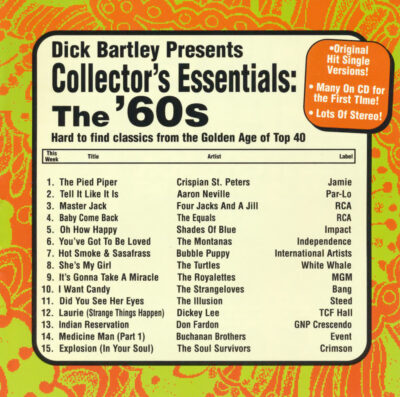 Dick Bartley’s leap from local sensation to national icon began with a simple but revolutionary idea: what if the oldies format could be more than nostalgia? What if it could be interactive, communal, and live?
Dick Bartley’s leap from local sensation to national icon began with a simple but revolutionary idea: what if the oldies format could be more than nostalgia? What if it could be interactive, communal, and live?
In January 1982, that idea took flight when RKO Radio Networks syndicated Bartley’s Chicago-born “Saturday Night Oldies” under a new name: Solid Gold Saturday Night. It was the first live, coast-to-coast oldies request show in American radio history. For listeners tuning in from New York to Los Angeles, Bartley’s voice became a Saturday night ritual—warm, informed, and always ready to take a call. The show wasn’t just about spinning records; it was about spinning stories. Listeners phoned in with dedications, memories, and musical wishes, and Bartley responded with empathy and encyclopedic precision. He made the airwaves feel like a living room.
The format was groundbreaking. Bartley blended Billboard chart data with listener requests, creating a hybrid of historical fidelity and emotional immediacy. Each broadcast was a curated experience, often featuring spotlight segments that focused on a particular artist, genre, or theme. Whether it was a tribute to The Rascals or a countdown of one-hit wonders, Bartley’s programming was both educational and evocative. In an era before streaming, before YouTube, before algorithmic playlists, Solid Gold Saturday Night was the place to rediscover forgotten gems and hear the stories behind the songs.
The show’s success was immediate and profound. Within months, Bartley was reaching millions of listeners across hundreds of affiliates. His toll-free request line became a lifeline for fans eager to hear “Earth Angel” or “Runaround Sue” blaring from their living room speakers. The jingle—bright, brassy, unmistakably Bartley—became a sonic signature. And when Wolfman Jack passed away in 1995, Bartley opened the show with a heartfelt dedication, taking the first call himself from a grieving listener. It was moments like these that elevated the program from entertainment to cultural touchstone.
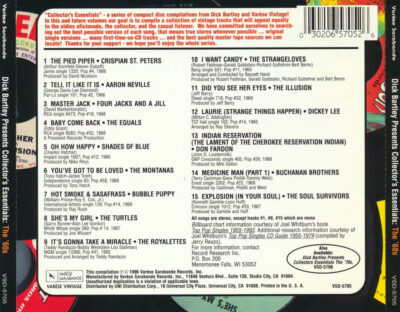 In 1983, Bartley expanded his reach with Solid Gold Scrapbook, a weekday series distributed by United Stations Radio Network. This show offered five one-hour themed countdowns, often aired as a five-hour block on weekends. Each episode was a deep dive into pop history—“This Week in 1964,” “Milestones in Music,” “Profile: Woodstock”—complete with archival audio, interviews, and rare tracks. Bartley’s voice guided listeners through musical timelines with the care of a historian and the heart of a fan. The Scrapbook format allowed for more nuanced storytelling, and stations embraced it as both midday programming and weekend retrospectives.
In 1983, Bartley expanded his reach with Solid Gold Scrapbook, a weekday series distributed by United Stations Radio Network. This show offered five one-hour themed countdowns, often aired as a five-hour block on weekends. Each episode was a deep dive into pop history—“This Week in 1964,” “Milestones in Music,” “Profile: Woodstock”—complete with archival audio, interviews, and rare tracks. Bartley’s voice guided listeners through musical timelines with the care of a historian and the heart of a fan. The Scrapbook format allowed for more nuanced storytelling, and stations embraced it as both midday programming and weekend retrospectives.
Bartley’s ability to balance live spontaneity with archival reverence made him a unique figure in syndicated radio. He wasn’t just a DJ—he was a curator, a narrator, and a trusted companion. His shows became sonic museums, preserving the emotional texture of Top 40 radio while inviting new generations to explore its legacy.
By the mid-1980s, Solid Gold Saturday Night had become more than a program—it was a movement. Fans recorded episodes on cassette, traded CD mailers, and built personal archives of Bartley’s broadcasts. The show’s spotlight features introduced obscure tracks and deep cuts, often reviving songs that hadn’t been heard in decades. Bartley’s dedication to stereo fidelity, historical accuracy, and listener engagement set a gold standard for syndicated programming.
This national chapter of Bartley’s career wasn’t just about reach—it was about resonance. He proved that oldies radio could be vibrant, interactive, and deeply meaningful. And in doing so, he laid the groundwork for everything that followed: countdowns, retrospectives, and the enduring magic of Rock & Roll’s Greatest Hits.
The Countdown Years: Ranking Hits, Elevating Emotion
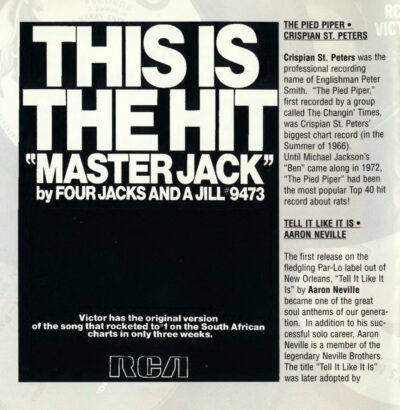 By the early 1990s, Dick Bartley had already proven himself a master of live radio. But with the launch of American Gold in 1991, he shifted gears—transforming his role from host to historian. This four-hour syndicated program, distributed by ABC Radio Networks, was more than a countdown show. It was a curated journey through the Billboard Hot 100, a celebration of pop music’s golden decades, and a weekly ritual for listeners who craved both nostalgia and narrative.
By the early 1990s, Dick Bartley had already proven himself a master of live radio. But with the launch of American Gold in 1991, he shifted gears—transforming his role from host to historian. This four-hour syndicated program, distributed by ABC Radio Networks, was more than a countdown show. It was a curated journey through the Billboard Hot 100, a celebration of pop music’s golden decades, and a weekly ritual for listeners who craved both nostalgia and narrative.
Unlike traditional countdowns that focused on current hits, American Gold spotlighted the biggest songs from a specific month or season in years past—often from the mid-1960s through the mid-1980s. Bartley’s genius lay in his ability to contextualize each track. He didn’t just announce chart positions; he painted cultural backdrops. A song from 1972 might be accompanied by reflections on Watergate, the rise of FM radio, or the popularity of bell-bottoms. A 1980 hit could be framed by the dawn of MTV, Reagan-era optimism, or the fading glow of disco. Bartley’s countdowns were time capsules, rich with pop culture, emotion, and memory.
Each episode of American Gold was divided into two thematic halves. One segment focused on a three-month window—say, “Spring of 1965”—while the other explored a spotlight theme: Motown classics, British Invasion hits, or the rise of singer-songwriters. Bartley’s voice guided listeners through these musical landscapes with reverence and warmth. His tone was never performative—it was personal. He spoke not as a broadcaster above the music, but as a companion within it.
The show also featured interactive elements, including “The Quiz Man,” a call-in contest where listeners could win prizes by identifying one-hit wonders or answering trivia questions. These moments added levity and connection, reinforcing Bartley’s belief that radio should be participatory, not passive.
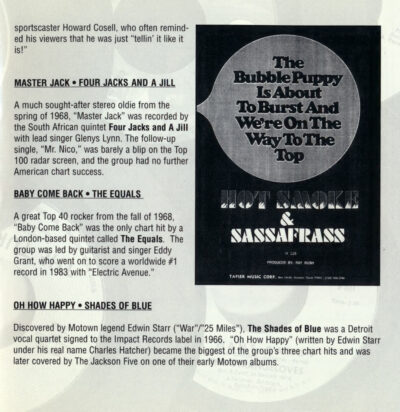 As the years progressed, American Gold evolved. The playlist expanded to include more late-’70s and early-’80s hits, reflecting the shifting definition of “oldies.” Bartley adapted gracefully, always maintaining the show’s core mission: to honor the emotional resonance of pop music. In 2009, after nearly two decades, Bartley bid farewell to American Gold with a final “1975 Yearbook” episode. But the countdown spirit lived on.
As the years progressed, American Gold evolved. The playlist expanded to include more late-’70s and early-’80s hits, reflecting the shifting definition of “oldies.” Bartley adapted gracefully, always maintaining the show’s core mission: to honor the emotional resonance of pop music. In 2009, after nearly two decades, Bartley bid farewell to American Gold with a final “1975 Yearbook” episode. But the countdown spirit lived on.
That same year, Bartley launched The Classic Countdown with United Stations Radio Network. This new iteration retained the heart of American Gold while streamlining its format. Each week, Bartley counted down the top 20 hits from a specific month between 1970 and 1987, using Billboard data as his guide. The show was fast-paced, tightly produced, and rich with archival drop-ins—news headlines, movie clips, and TV soundbites that framed each song in its cultural moment.
Bartley’s storytelling remained impeccable. He wove interviews with artists, producers, and songwriters into the countdown, offering behind-the-scenes insights that elevated the listening experience. Whether it was Billy Joel reflecting on “My Life” or Tina Turner discussing her comeback, Bartley gave voice to the creators behind the hits.
In New York, CBS-FM Classic Countdown offered a localized version of the show, pairing 1970s and 1980s countdowns in a four-hour block. This format allowed Bartley to explore musical contrasts across decades, highlighting how pop evolved while emotional themes remained timeless. The WCBS-FM edition ran until 2014, becoming a Sunday night staple for tri-state listeners.
Throughout the countdown years, Bartley also produced seasonal specials that became fan favorites. “Summer Classics,” “Halloween Hits,” “Yuletide Gold,” and “All-Time Greatest Hits” aired annually, each infused with Bartley’s signature blend of chart precision and emotional storytelling. These episodes weren’t just themed—they were celebratory, communal, and deeply nostalgic.
By the time The Classic Countdown aired its final episode in June 2017—a tribute to the top hits of June 1984—Bartley had chronicled nearly five decades of pop history. His countdowns weren’t just lists; they were love letters. And for listeners across America, they became part of their own life soundtrack.
Dick Bartley | Classic Countdown: March 1966 | United Stations Radio Network
Audio Digitally Remastered by USA Radio Museum
Final Acts: A Graceful Farewell and Encore of Appreciation
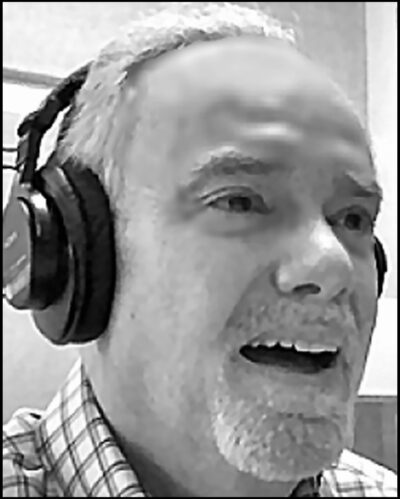 As the 2010s drew to a close, Dick Bartley stood at a crossroads—not of relevance, but of reflection. After decades of shaping the soundscape of American radio, he was ready to distill his legacy into one final chapter. In 2009, Bartley transitioned to United Stations Radio Network, where he launched Dick Bartley’s Classic Hits, a weekly countdown program that spotlighted the best of 1970s and 1980s rock, pop, and soul. From Fleetwood Mac to Phil Collins, from Donna Summer to Huey Lewis, Bartley curated each episode with the same care and charisma that had defined his career.
As the 2010s drew to a close, Dick Bartley stood at a crossroads—not of relevance, but of reflection. After decades of shaping the soundscape of American radio, he was ready to distill his legacy into one final chapter. In 2009, Bartley transitioned to United Stations Radio Network, where he launched Dick Bartley’s Classic Hits, a weekly countdown program that spotlighted the best of 1970s and 1980s rock, pop, and soul. From Fleetwood Mac to Phil Collins, from Donna Summer to Huey Lewis, Bartley curated each episode with the same care and charisma that had defined his career.
The format was sleek and celebratory. Each broadcast featured two Top Ten countdowns—one from the ’70s, one from the ’80s—anchored by Billboard Hot 100 data and enriched with Bartley’s signature storytelling. The show was pre-recorded, a shift from his earlier live broadcasts, but the intimacy remained. Bartley’s voice still carried the warmth of a trusted friend, guiding listeners through musical memories with grace and precision.
Then, in February 2020, Bartley unveiled a new version of Rock & Roll’s Greatest Hits, this time with a focused lens on the 1960s. It was a return to roots—a three-hour weekly celebration of the British Invasion, Motown, surf rock, and the soulful anthems that defined a generation. The revival was inspired by the success of Bartley’s “Summer of 1969” special, which had aired the previous year to commemorate the cultural and musical milestones of that iconic season. The response was overwhelming. Listeners craved more, and Bartley delivered.
This final iteration of Rock & Roll’s Greatest Hits was a masterclass in musical curation. Bartley spotlighted artists like The Beatles, The Supremes, The Beach Boys, and Creedence Clearwater Revival, weaving their hits into themed episodes that felt both archival and alive. The show wasn’t just a retrospective—it was a celebration. Bartley’s voice, now seasoned with decades of experience, carried a reverence that elevated each track into a cultural artifact.
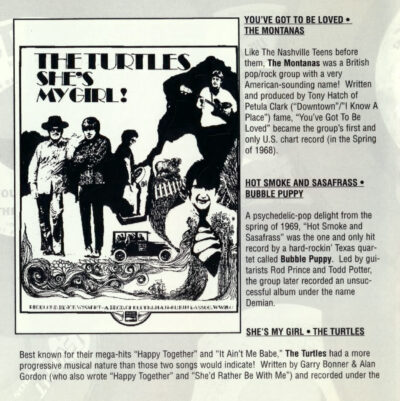 But even legends must eventually take a bow. On December 15, 2021, Bartley announced his retirement, with final broadcasts scheduled for the weekend of January 1–2, 2022. The news rippled through the radio community, prompting tributes from colleagues, fans, and stations that had carried his voice for generations. Affiliates prepared farewell segments. Listeners shared memories. And Bartley, ever the professional, crafted his final shows with the same meticulous care as his first.
But even legends must eventually take a bow. On December 15, 2021, Bartley announced his retirement, with final broadcasts scheduled for the weekend of January 1–2, 2022. The news rippled through the radio community, prompting tributes from colleagues, fans, and stations that had carried his voice for generations. Affiliates prepared farewell segments. Listeners shared memories. And Bartley, ever the professional, crafted his final shows with the same meticulous care as his first.
The last episodes of Dick Bartley’s Classic Hits and Rock & Roll’s Greatest Hits were not somber farewells—they were encores. Bartley revisited the hits of July 1976 and the Class of 1981, blending nostalgia with gratitude. He didn’t dwell on endings; he celebrated beginnings. The broadcasts were filled with joy, reflection, and a quiet sense of triumph. Bartley had done what few in radio ever achieve: he had sustained relevance, connection, and excellence across five decades.
In interviews following his retirement, Bartley expressed deep appreciation for his listeners, his affiliates, and the artists whose music he championed. He spoke of his family—wife Cynthia, daughters Diane and Jane—and the balance they helped him maintain throughout his career. He didn’t seek fanfare. He sought fidelity: to the music, to the memories, and to the medium he loved.
Bartley’s final acts weren’t just the end of a career. They were the culmination of a philosophy—that radio, at its best, is a bridge between past and present, between artist and audience, between sound and sentiment. And as the curtain fell, Bartley left behind not silence, but a legacy that continues to echo in playlists, archives, and hearts.
Accolades and Honors: Recognition Beyond the Airwaves
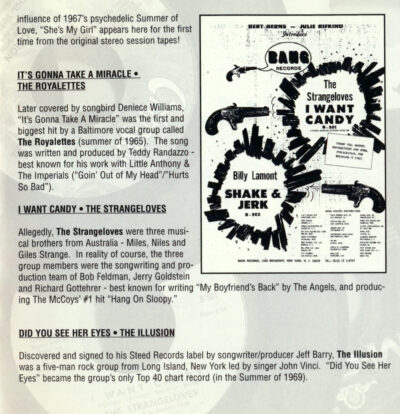 Dick Bartley’s career wasn’t just beloved by listeners—it was revered by the industry. His accolades form a constellation of recognition that spans decades, formats, and institutions, each one affirming his role as a transformative figure in American broadcasting.
Dick Bartley’s career wasn’t just beloved by listeners—it was revered by the industry. His accolades form a constellation of recognition that spans decades, formats, and institutions, each one affirming his role as a transformative figure in American broadcasting.
Between 1988 and 1990, Bartley earned the Billboard Radio Award for Network Program of the Year three years in a row. These honors weren’t just about ratings—they celebrated Bartley’s ability to elevate syndicated programming into an art form. His shows weren’t cookie-cutter; they were crafted with precision, passion, and a deep respect for the music. The Billboard awards recognized his mastery of format, his innovative use of chart data, and his uncanny ability to make national radio feel local, personal, and alive.
In the early 1990s, Bartley was nominated three times for the National Association of Broadcasters’ Marconi Award for Network Personality of the Year—in 1992, 1993, and 1995. The Marconi, named after the father of wireless telegraphy, is one of radio’s highest honors. Bartley’s nominations placed him among the elite voices of the medium, acknowledging not just his popularity but his professionalism, consistency, and cultural relevance. Though he never took home the trophy, his repeated presence among the finalists spoke volumes about his influence and integrity.
Then came a moment of international recognition. In June 1996, Bartley won the World Medal at the New York International Radio Festival for his Beatles ’95 special—a two-hour tribute that blended archival interviews, historical commentary, and a rare conversation with Paul McCartney. The program traced the Beatles’ journey from Liverpool to Abbey Road, capturing both the sonic evolution and emotional resonance of their legacy. Bartley’s liner notes, written with Pat Clarke, added depth and intimacy, while the production quality set a new standard for syndicated specials. The award wasn’t just for content—it was for craftsmanship. Bartley had created a broadcast that felt like a museum exhibit in motion.
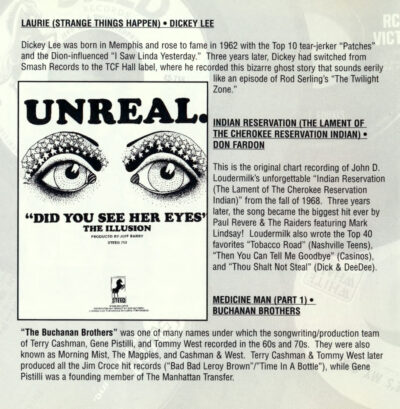 In August 2002, Bartley was named one of America’s Top 25 Most Influential Syndicated Radio Personalities by Radio Ink magazine. This recognition wasn’t tied to a single show or moment—it was a career-spanning salute. Bartley had shaped the way syndicated radio could sound, feel, and function. He had proven that national programming could be emotionally resonant, historically rich, and deeply personal. His influence extended beyond playlists and countdowns—it touched the very architecture of how radio connects with its audience.
In August 2002, Bartley was named one of America’s Top 25 Most Influential Syndicated Radio Personalities by Radio Ink magazine. This recognition wasn’t tied to a single show or moment—it was a career-spanning salute. Bartley had shaped the way syndicated radio could sound, feel, and function. He had proven that national programming could be emotionally resonant, historically rich, and deeply personal. His influence extended beyond playlists and countdowns—it touched the very architecture of how radio connects with its audience.
And of course, in November 2000, Bartley was inducted into the National Radio Hall of Fame, presented by Chuck Negron of Three Dog Night. The ceremony, held in Chicago, was a celebration of legacy. Bartley joined the ranks of broadcasting giants—not just for his longevity, but for his innovation, his storytelling, and his unwavering commitment to honoring the music and the memories it carried.
These honors weren’t just trophies on a shelf. They were affirmations of Bartley’s philosophy: that radio is a living archive, a shared experience, and a vessel for emotion. Each award reflected a different facet of his brilliance—his technical skill, his narrative depth, his cultural sensitivity, and his enduring connection with listeners.
Bartley didn’t chase accolades. He earned them by staying true to his voice, his values, and his vision. And in doing so, he became not just a broadcaster, but a steward of sound.
Home Life and Humanity: Beyond the Broadcast
Behind the syndicated success and the golden playlists, Dick Bartley lived a life grounded in family, faith, and quiet joy. Though his voice reached millions, his personal world remained intimate—anchored in Falls Church, Virginia, where he and his wife Cynthia built a home filled with warmth, music, and meaning.
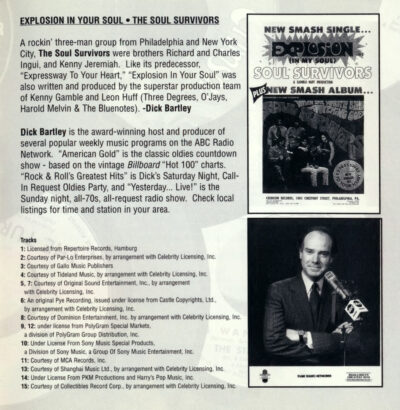 Both Dick and Cynthia graduated from the University of Virginia, a shared alma mater that laid the foundation for their lifelong partnership. Their marriage was not just a union of hearts, but of minds—Cynthia’s quiet strength and support allowed Bartley to pursue his demanding radio career with balance and grace. Together, they raised two daughters, Diane and Jane, each of whom carried forward the family’s legacy of curiosity and excellence. Diane graduated from Duke University, while Jane earned her degree from Dartmouth—testaments to the values of education, integrity, and ambition that defined the Bartley household.
Both Dick and Cynthia graduated from the University of Virginia, a shared alma mater that laid the foundation for their lifelong partnership. Their marriage was not just a union of hearts, but of minds—Cynthia’s quiet strength and support allowed Bartley to pursue his demanding radio career with balance and grace. Together, they raised two daughters, Diane and Jane, each of whom carried forward the family’s legacy of curiosity and excellence. Diane graduated from Duke University, while Jane earned her degree from Dartmouth—testaments to the values of education, integrity, and ambition that defined the Bartley household.
Bartley rarely spoke at length about his private life on air, but when he did, it was with tenderness. He shared anecdotes about family road trips soundtracked by The Beach Boys, or holiday mornings filled with Motown classics. These glimpses reminded listeners that Bartley wasn’t just a curator of memories—he was a maker of them. His broadcasts often reflected the rhythms of his own life: countdowns that mirrored the passage of time, dedications that echoed the love he felt for his own family, and retrospectives that honored the milestones he cherished.
Colleagues who worked closely with Bartley describe him as gracious, fiercely organized, and deeply loyal. He was known for sending handwritten thank-you notes, remembering birthdays, and mentoring younger broadcasters with patience and generosity. Engineers recall his meticulous attention to sound quality, while producers admired his ability to script with both precision and poetry. Bartley didn’t just lead—he uplifted.
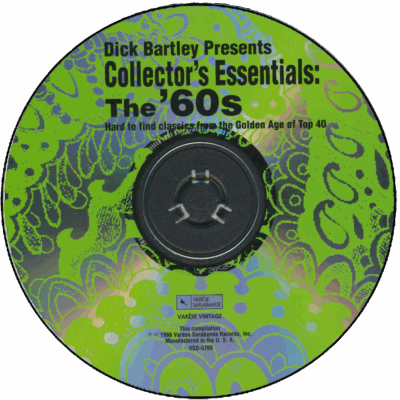 Artists, too, felt the impact of his humanity. Many credited Bartley with reviving interest in their catalogues, introducing their work to new audiences, and treating their stories with dignity. His interviews were never transactional—they were tributes. He asked thoughtful questions, listened intently, and made space for reflection. For musicians whose careers had faded from the spotlight, Bartley’s programs offered a second act, a renewed sense of relevance, and a heartfelt reminder that their work mattered.
Artists, too, felt the impact of his humanity. Many credited Bartley with reviving interest in their catalogues, introducing their work to new audiences, and treating their stories with dignity. His interviews were never transactional—they were tributes. He asked thoughtful questions, listened intently, and made space for reflection. For musicians whose careers had faded from the spotlight, Bartley’s programs offered a second act, a renewed sense of relevance, and a heartfelt reminder that their work mattered.
Listeners, perhaps more than anyone, felt the depth of Bartley’s empathy. They called in not just to request songs, but to share memories—of lost loved ones, first dances, and long drives. Bartley responded with kindness, often weaving their stories into the fabric of the show. He understood that radio wasn’t just about sound—it was about sentiment. And he treated every caller, every dedication, every anecdote with the reverence it deserved.
In retirement, Bartley remained active in his community, occasionally contributing to radio retrospectives and lending his voice to archival projects. But he also embraced stillness—spending time with Cynthia, visiting his daughters, and reflecting on a career that had touched so many lives. He didn’t seek the spotlight. He sought connection.
“Radio is a relationship,” Bartley once said. “It’s not just what you play—it’s how you make people feel.” That philosophy defined his broadcasts, his friendships, and his family life. And it’s why, even off the air, his presence continues to resonate.
Dick Bartley | Classic Countdown: February 26, 1970 | United Stations Radio Network
Audio Digitally Remastered by USA Radio Museum
A Museum Tribute: Soundtracking America’s Radio Sentiment
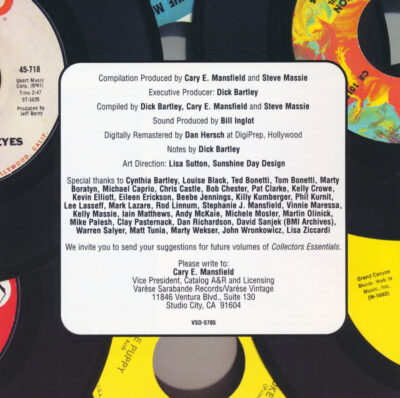 To honor Dick Bartley within the halls of the USA Radio Museum is to honor more than a broadcaster—it is to enshrine a cultural custodian. Bartley’s career was a living archive, a four-decade-long preservation of pop music’s emotional heartbeat. His countdowns, request shows, and themed retrospectives didn’t just entertain—they documented. They stitched together the personal and the historical, the ephemeral and the eternal.
To honor Dick Bartley within the halls of the USA Radio Museum is to honor more than a broadcaster—it is to enshrine a cultural custodian. Bartley’s career was a living archive, a four-decade-long preservation of pop music’s emotional heartbeat. His countdowns, request shows, and themed retrospectives didn’t just entertain—they documented. They stitched together the personal and the historical, the ephemeral and the eternal.
In curating this tribute, the Museum recognizes Bartley’s unique role in bridging generations. His programs served as sonic heirlooms, passed down from parents to children, from vinyl to digital, from memory to moment. Visitors will encounter not just playlists, but pathways—audio journeys that trace the evolution of American pop, soul, and rock through Bartley’s lens. His voice, preserved in curated airchecks and archival segments, will guide guests through decades of musical transformation.
The exhibit will feature selections from Dick Bartley Presents Collector’s Essentials, showcasing stereo mixes of rare radio singles that Bartley personally curated for CD release. These compilations, many of which include tracks never before available in stereo, reflect his commitment to fidelity—not just sonic, but emotional. Each track tells a story, and each story is part of Bartley’s larger mission: to make music feel personal again.
But perhaps most importantly, this tribute will celebrate Bartley’s philosophy: that radio is a relationship. Through his broadcasts, Bartley built a community—one rooted in memory, melody, and meaning. His programs didn’t just play hits; they played hearts. And in doing so, he reminded America that music isn’t just heard—it’s felt.
As the USA Radio Museum unveils this exhibit, it invites visitors to rediscover the soundtrack of their lives. To hear Bartley’s voice is to hear the echo of a thousand Saturday nights, a million dedications, and countless moments of joy. His legacy is not just in the songs he played, but in the way he made us feel when we heard them.
Dick Bartley wasn’t just a steward of radio history—he embodied it. With this tribute, his voice continues to resonate, offering warmth, wisdom, and wonder with every cherished song that radio played—and we remember.
_____________________
A USARM Viewing Tip: On your PC? Mouse/click over each image for expanded views. On your mobile or tablet device? Finger-tap all the above images inside the post and stretch image across your device’s screen for LARGEST digitized view.

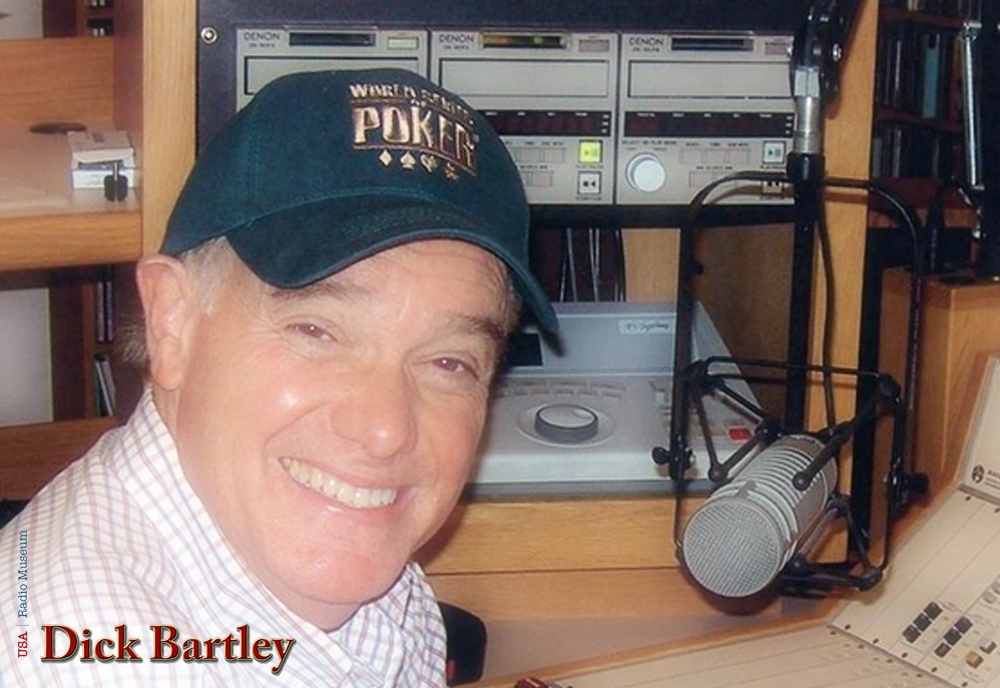
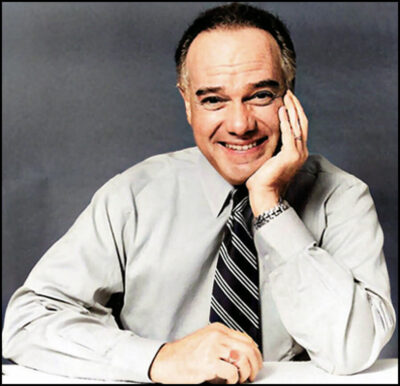
Most of all Dick Bartley was the inspiration for both “Motor City Radio Flashbacks” and “The United States Of America Radio Museum” right?